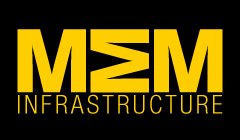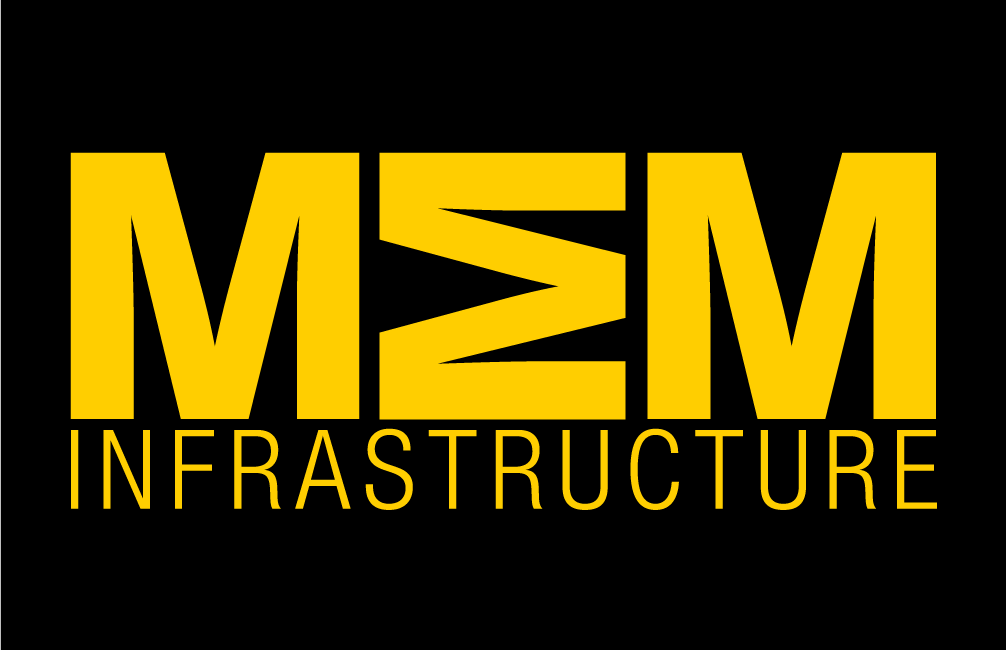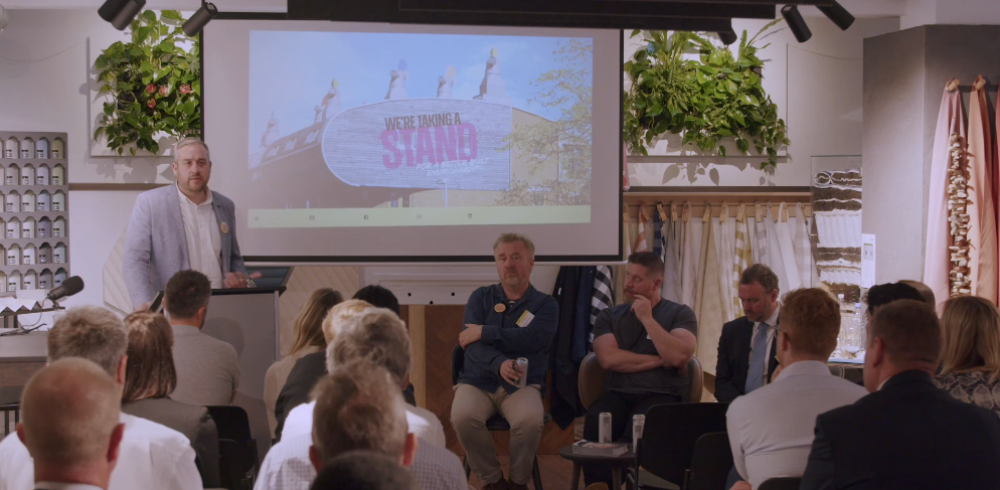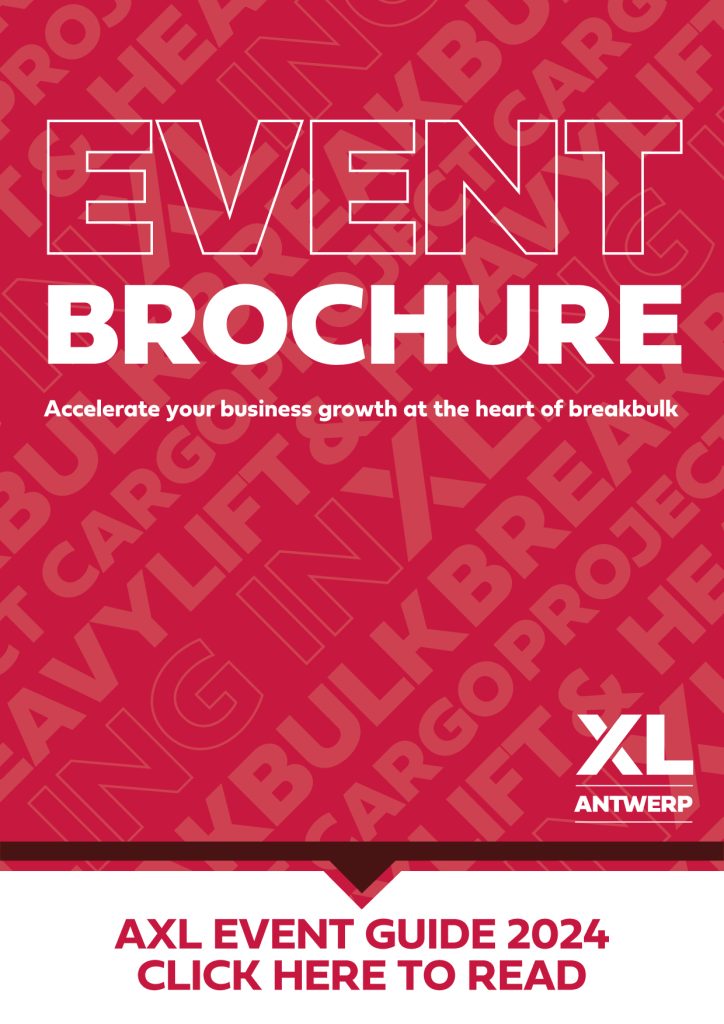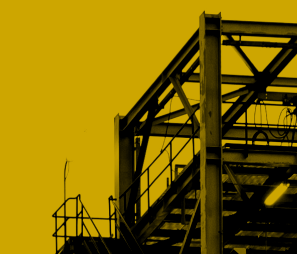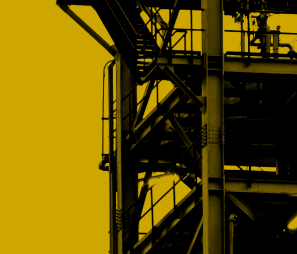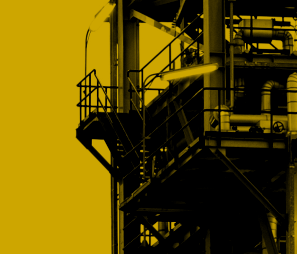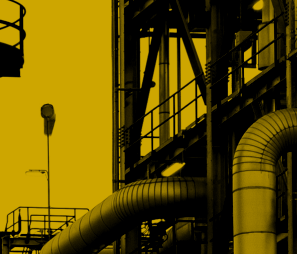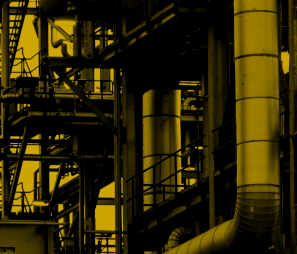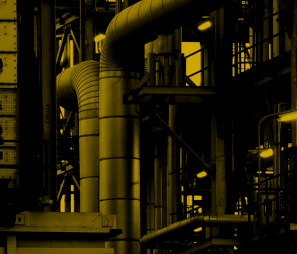An industrywide survey has revealed low carbon composition and greater sustainability were the key factors for customers when specifying building products. The poll, which garnered responses from nearly 400 representatives from across the construction sector, was created to coincide with the launch of Futurebuild 2023.
The responses were among discussion points at an exclusive industry event, ‘Role of Specification in Meeting Net Zero’, which was held at the EDGE Showroom in London to promote next year’s Futurebuild – the premier showcase for product innovation in the construction industry. Designed to gain insights into people’s appetite for innovation in the building sector, the survey showed most respondents (61.5%) believed ‘resistance to switch from traditional technologies,’ was the main barrier to developing smarter, cleaner working practices.
Martin Hurn, Futurebuild’s Event Director and host of the launch event that included presentations from a panel of building industry experts, said: “From my point of view, the take away from this fantastic event was the need for the building supply chain to come together and take a stand for a better built environment. The time for road maps is over. We need to take action now to really drive the built environment towards the government’s net zero goal.”
Speakers at the Futurebuild launch event included Dr Gavin Dunn, CABE CEO and chair for Future Homes Standards; Dr Oliver Jones, Research Director, Ryder Architecture; Chaline Church, Founding Partner for 540 World; and Duncan Baker-Brown, Director at Baker-Brown Studio.
The expert panel fielded questions from a host of specially-invited attendees from across the building sector. The findings from Futurebuild’s innovation survey proved a key discussion point, along with issues such as the Future Homes Standard, building material reuse and the circular economy.

Poll respondents included input from senior architects, local government employees, housebuilders, manufacturers and contractors. Other results revealed most respondents (60%) were actively sourcing new innovations in renewables such as solar PV panels, heat pumps and biomass heating systems, as a way of achieving greater sustainability. In terms of developing clean technologies, 67% of respondents felt that government support was necessary to the process.
By way of a conclusion to the panel’s discussion, it was agreed that better engagement between manufacturers, architects and specifiers was key to innovating products that led to a more sustainable built environment.
“We’re all on a journey to achieving the government’s net zero goal by 2050,” Martin Hurn continued. “I believe forums, such as the one we provided for industry delegates are a vital part of that journey. The solutions exist within the supply chain to create a better built environment. It’s now about giving those innovative brands the platform to really showcase their products, solutions and innovations. Futurebuild 2023 will be that platform.”
